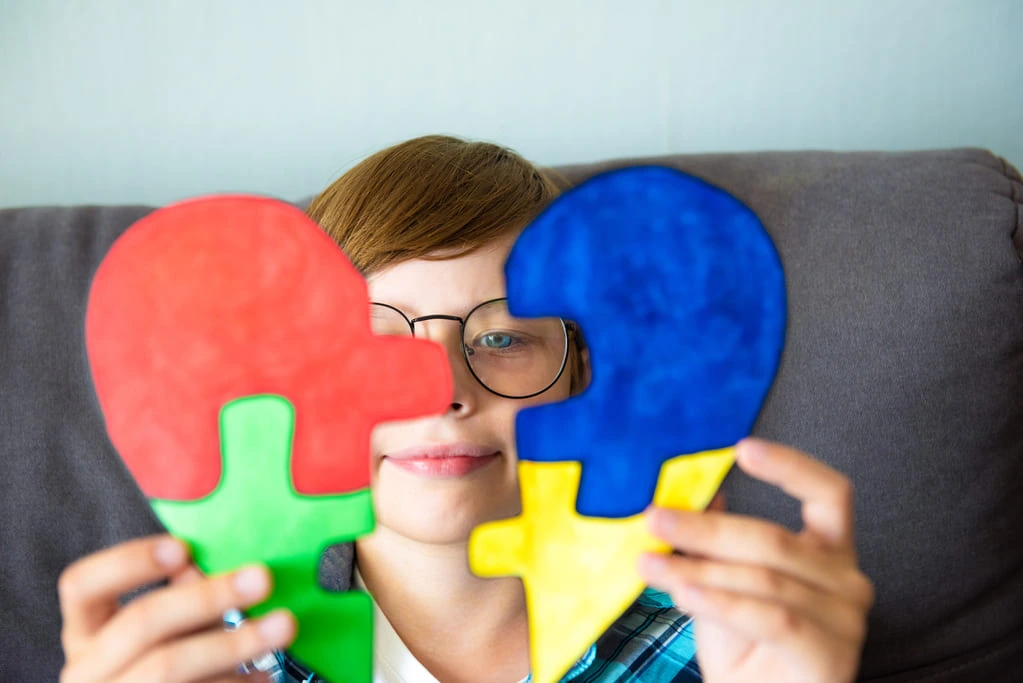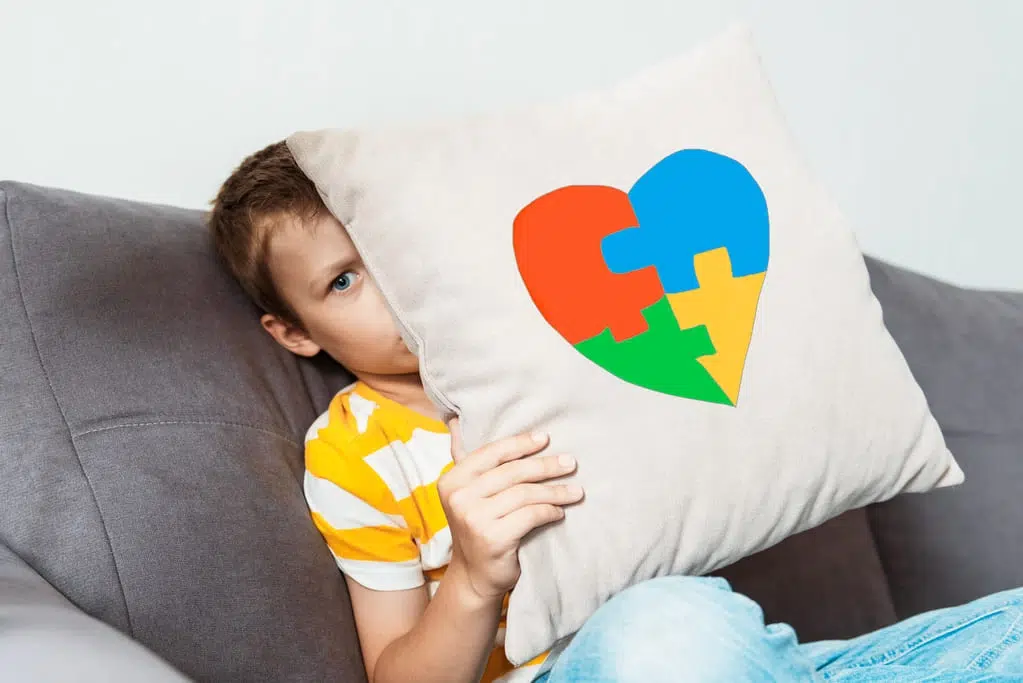What Is Self-Injurious Behaviour?
In autism spectrum disorder, it’s crucial to understand the challenges people may face, and one significant aspect is self-injurious behaviour. This term refers to actions where a person harms oneself intentionally. For individuals with autism spectrum disorder, these actions can manifest in various ways, such as hitting, biting, or head-banging. It’s vital to recognise that self-injurious behaviour isn’t a defining trait of autism but rather a challenge, often linked to difficulties in communication or sensory sensitivities. As we delve into the depths of neurodiversity, we find that autistic adults, just like children, can experience these struggles. By acknowledging this, we can build support systems that address the signs and causes with understanding, ultimately preventing self-harm in autism spectrum disorders.
Individuals on the autism spectrum are at similarly elevated risk regarding mental health. It’s important to realise that self-injurious behaviour is often linked to autistic burnout, showing the importance of good mental health. At Leaf Complex Care, our devotion towards the people we serve is rooted in the need for comprehensive and compassionate care. By fostering awareness and creating inclusive environments, we can build a society where everyone receives the understanding and support they deserve, regardless of their neurological differences.
Parents/Guardians must be involved in creating a more relaxed environment that brings peaceful moments for their children, especially during home activities. Everyone needs a guiding hand, especially when it comes from experts in neurodiversity. For that purpose, our in-house therapists have created the first Autism guide for parents to support their children at home. The guide includes many specialist-recommended sensory activities and advice to support children and young people in engaging in fun play, feeling more encouraged to learn new skills, and better managing their behaviour, with the support of their parents. In more complex cases, you can always choose ongoing support for your loved one from our care teams and PBS practitioners who can help manage behaviours of concern that, if untreated, can pose a risk. Learn many practical strategies by downloading the Guide and implement them in your child’s everyday life.
A Parent’s Guide to Home Support for Autistic Children
Causes of Self-Injurious Behaviour
When addressing the causes of self-injurious behaviour in autism, we encounter a complex interplay of factors. Self-injury is a challenging aspect affecting both children and autistic adults. This behaviour, often referred to as self-harm, involves actions that cause physical harm to oneself. It’s crucial to explore the underlying causes of self-injurious behaviour in individuals with autism, as it allows us to support them better on their unique journeys.

Autism, being a spectrum disorder, manifests differently in each person. For some individuals, self-injury becomes a way to cope with sensory overload or communication difficulties, whereas, for others, it might stem from frustration due to unmet needs. Additionally, challenges with expressing emotions and needs verbally can lead to immense frustration, prompting self-harm as a form of communication.
Indeed, several common triggers can contribute to self-injurious behaviour in individuals with autism. Here are some common triggers for self-injury in autism:
- Sensory Overload
- Communication Difficulties
- Changes in Routine
- Anxiety and Uncertainty
- Physical Discomfort
- Emotional Distress
- Lack of Social Skills
- Unmet Sensory Needs
- Medication Side Effects
- Bullying or Social Challenges
Understanding these diverse triggers is essential in providing tailored care and providing effective support for children with autism and autistic adults.
Strategies to Prevent Self-Harm in Autistic Individuals
Empathy and patience form the foundation of prevention strategies. Creating safe environments where individuals feel understood and valued is essential. Caregivers, educators, and healthcare professionals can employ communication techniques that resonate with autistic individuals, fostering trust and openness. Additionally, promoting activities that channel their energy positively, providing sensory-friendly spaces, and encouraging hobbies that provide emotional outlets can significantly reduce the likelihood of self-harm. By embracing the unique qualities of each person on the autism spectrum and providing the right support, we can build a world where self-harm is not a defining aspect of their journey but one they overcome with resilience and understanding.
Here are some specific strategies to prevent self-harm in autistic individuals:
- Individualised Support Plans – Create personalised support plans tailored to the specific needs and triggers of the individual. Understanding their unique challenges helps in developing targeted strategies.
- Positive Behavior Support (PBS) – Implement PBS, an evidence-based approach focusing on understanding the underlying causes of behaviours. PBS develops personalised strategies to address triggers, teaching alternative communication, providing sensory accommodations, and emphasising positive reinforcement for desirable behaviours.
- Cognitive Behavioral Therapy (CBT): CBT techniques can help individuals recognise negative thought patterns and develop coping mechanisms. Therapists can work on identifying triggers and teaching adaptive responses.
- Communication Training – Provide communication training for both caregivers and individuals with autism. Teaching alternative communication methods like sign language or picture communication can enhance expression and reduce frustration.
- Sensory-Friendly Environments – Design safe spaces with muted lighting, comfortable furniture, and sensory tools like fidget toys. These environments can help regulate sensory sensitivities, reducing anxiety and the inclination towards self-harm.
- Social Skills Training: Offer social skills training to improve interpersonal relationships. Learning to navigate social situations can enhance self-confidence, reducing feelings of isolation and self-harm tendencies.

Navigating the challenges of self-injury requires a thoughtful, humanised and caring approach, especially when preventing self-harm in individuals with neurological differences and developmental disorders. Self-injury is a concern for many on the autism spectrum, but these strategies can make a significant difference in both clinical and nonclinical settings.
One crucial step is recognising the heightened risk factors that autistic individuals may face. Understanding their unique needs and triggers is fundamental. Tailored preventive mental health services are pivotal here, providing the necessary support and guidance. It’s not just about addressing the symptoms but understanding the person behind the diagnosis and appreciating their individuality and humanity.
Identifying the Causes
In understanding autism spectrum disorder, it is crucial to explore the reasons behind a behaviour that can cause self-injury. Through comprehensive studies, researchers unveil the heightened risk that people with neurological differences and developmental disabilities face regarding self-injury. These studies emphasise the importance of recognising the humanity within these experiences and the importance of proactive support. By fostering understanding, we help create a world where support and empathy guide individuals navigating the unique complexities of autism spectrum disorder.
Creating a Safe and Sensory-Friendly Environment
Creating a safe and sensory-friendly environment for autistic individuals is essential to help them thrive and feel comfortable. We can design calming and supportive spaces by understanding their unique sensory needs and preferences. Soft lighting, gentle colours, and quiet corners provide a soothing atmosphere. Respecting personal space and allowing individuals to control their surroundings is important. Simple adjustments like noise-cancelling headphones or fidget toys can make a huge difference. Embracing these small changes with empathy and patience can transform any space into a haven where autistic individuals can express themselves freely and comfortably. Together, we can create a world that embraces and celebrates neurodiversity.
At the Bristol office of Leaf Complex Care, we have gone the extra mile to support our autistic community. We’ve established a dedicated sensory room, carefully designed to cater to various sensory needs. It’s where individuals can retreat to find rest and regain balance. By having such a space within our workplace, we emphasise our commitment to understanding and accommodating the diverse needs of our colleagues and the individuals we support.
Encourage Open Dialogue
In our journey to create a more inclusive world, it’s crucial to encourage open dialogue for autistic individuals. Every voice deserves to be heard, and when we engage in open conversations, we embrace diverse perspectives, learn from one another, and break down barriers. Let’s listen with empathy, speak with kindness, and create a space where everyone feels valued. Together, we can build a society where every individual, regardless of their neurodiversity, can thrive and shine brightly.
Promote Emotional Regulation
In caring for autistic individuals at home, nurturing emotional regulation is like planting seeds of understanding and patience. Autistic individuals experience a whirlwind of emotions like neurotypicals, but recognising these feelings can be challenging. In simple terms, emotional regulation means understanding and sorting out feelings so they don’t become overwhelming. Think of it as a skill we all learn as we grow, but it needs a bit more guidance for some. Each person, regardless of their environment, has a unique emotional journey. Helping autistic individuals understand these emotions is the first step. They can navigate their own dynamic landscape by understanding their feelings. This self-awareness paves the way for them to manage their emotions better, fostering a sense of calm.
Apply Positive Behaviour Support Approach
In the familiarity of one’s own home, autistic individuals find comfort and security, so providing them with the right support is central. Applying Positive Behaviour Support (PBS) is a method and a heartfelt commitment to understanding and embracing the diverse needs of those we care for. Instead of focusing on what an individual can’t do, we celebrate their accomplishments, no matter how small. Through PBS, we create an environment where positivity thrives, communication is a bridge, and every achievement is a path towards improvement. It’s not just about managing behaviours; it’s about fostering a sense of belonging, security, and love at home. In this nurturing atmosphere, routines become gentle guides rather than strict rules.
PBS helps us uncover people’s unique strengths and interests, channelling these into activities that bring joy and fulfilment. It’s about seeing the world through their eyes, appreciating their perspectives, and empowering them to express their thoughts and emotions. Our support workers are present every step of the way, providing compassionate support, and every step forward is completed with encouragement. With the PBS approach, we don’t just offer care; we build meaningful connections, fostering a home filled with compassion, understanding, and endless possibilities.
The Importance of Early Intervention and Holistic Support
As a care-at-home provider, in our journey of supporting autistic individuals, early intervention and holistic care are like steady guiding hands, providing comfort and stability. By recognising and addressing autistic people’s needs early on, we pave the way for a future filled with potential and endless possibilities. Holistic support, wrapped in understanding and compassion, means not just focusing on challenges but embracing the complete person—their joys, strengths, and unique qualities. It’s about creating a safe place where people can express themselves freely, knowing that they are accepted and valued just as they are. Together, through patient understanding and unwavering support, we can make a significant difference in people’s lives, fostering a sense of belonging and empowering them to thrive significantly.
Leaf Complex Care Uses PBS to Prevent Self-Harm in Autistic Individuals
At Leaf Complex Care, we understand the unique challenges autistic individuals face, especially regarding self-harm. Through our crisis support, we employ Positive Behavior Support, a caring approach tailored to each person’s needs. Through the key principles of PBS, we work closely with individuals, focusing on their strengths and preferences, to prevent self-inflicted physical injury. Our person-centred care means we see beyond a diagnosis, valuing each individual’s story and potential. With offices in Bristol, South East, Birmingham, and Somerset, our dedicated team is always nearby, ready to offer support and understanding.
If you or someone you know could benefit from our services, contact us today.
Let’s work together to make a positive change.

